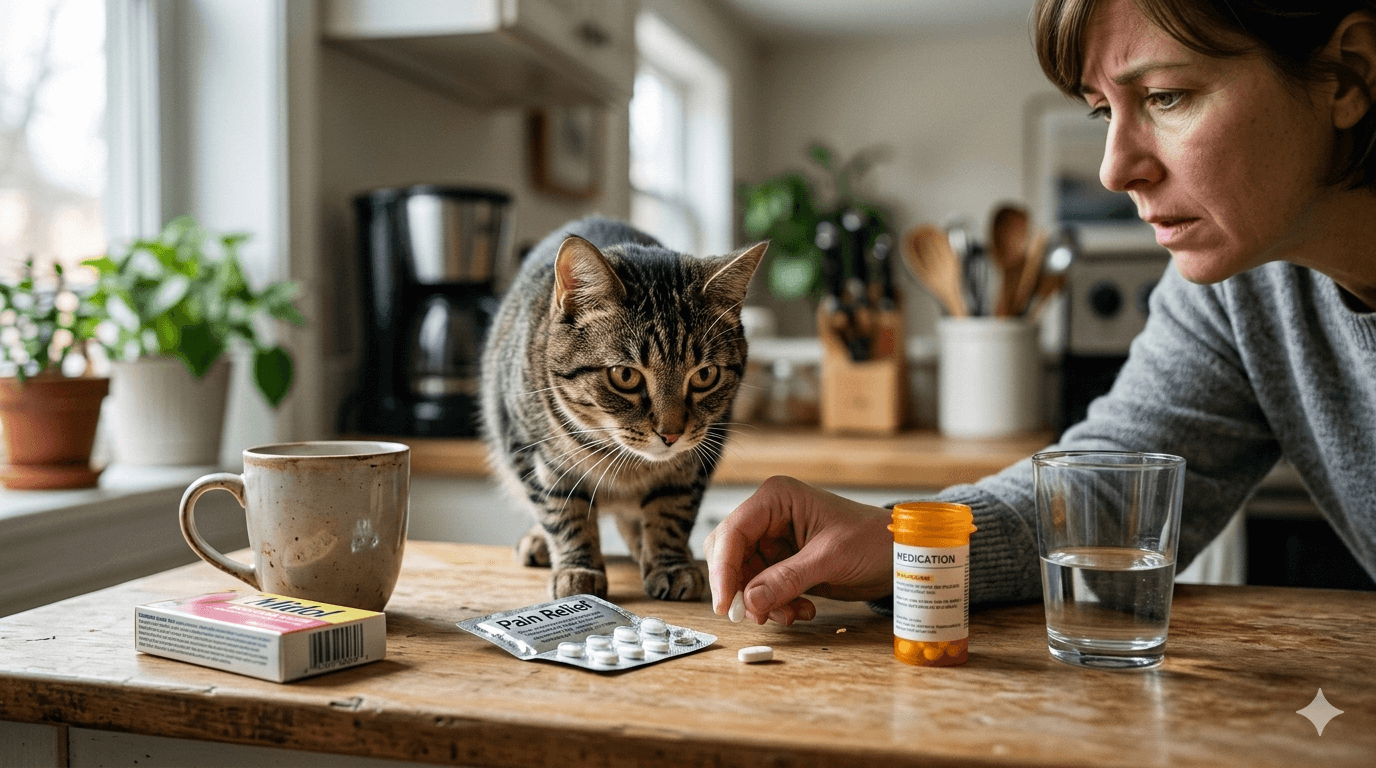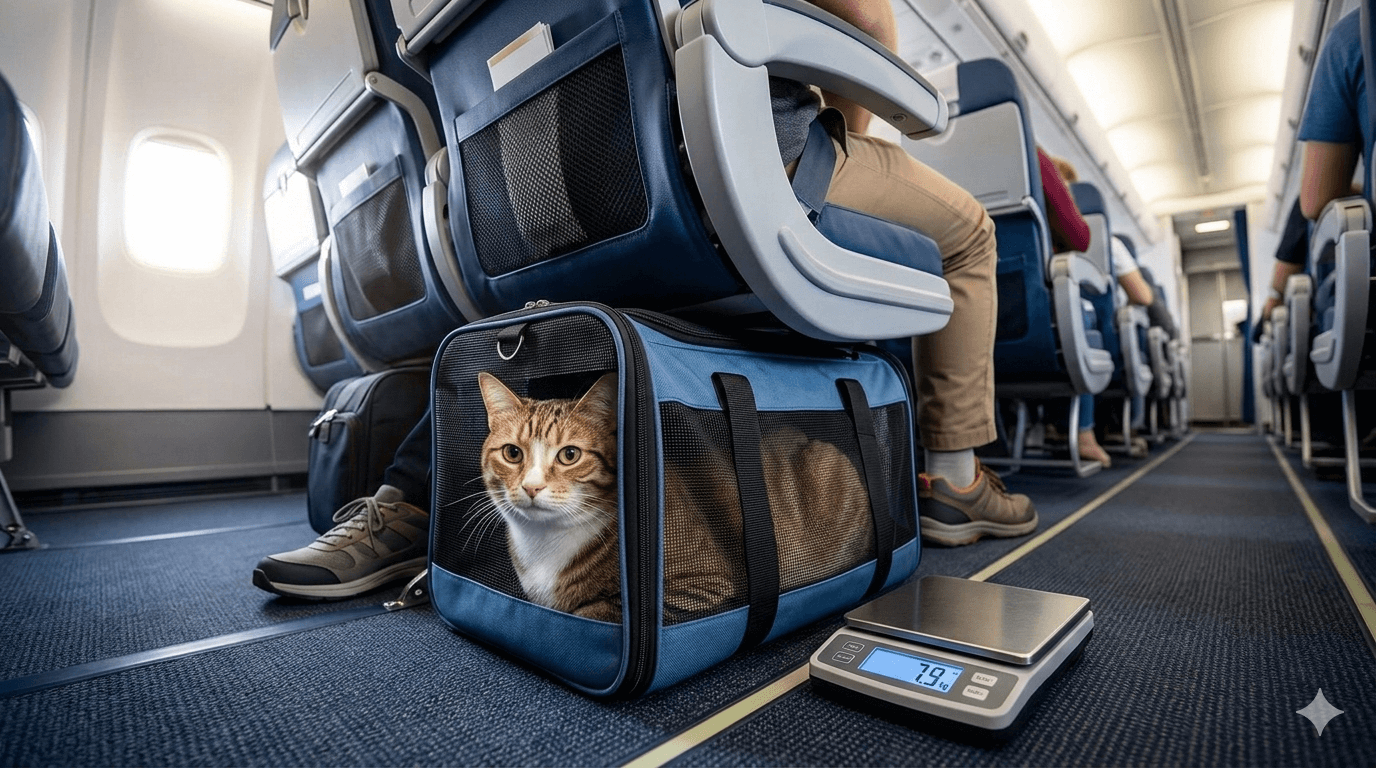Gastritis in Cats: Understanding and Managing This Common Condition
Gastritis, or inflammation of the stomach lining, is a condition that can affect cats of all ages and breeds. While it may sound alarming, gastritis is relatively common and often treatable with proper care. It can occur suddenly (acute gastritis) or develop over time (chronic gastritis), and its causes range from dietary indiscretion to underlying health issues. Recognizing the symptoms early and understanding how to manage this condition can make a significant difference in your cat’s comfort and recovery. In this guide, we’ll explore the causes, symptoms, treatment options, and preventive measures for gastritis in cats, helping you ensure your feline friend stays healthy and happy.
Common Causes of Gastritis in Cats
Gastritis in cats can stem from a variety of factors, ranging from environmental triggers to internal health problems. Identifying the cause is crucial for effective treatment. Here are some common culprits:
Dietary Indiscretion : Eating spoiled food, non-food items, or sudden changes in diet can irritate the stomach lining.
Food Allergies or Intolerances : Certain ingredients in your cat’s food may trigger an allergic reaction or digestive upset.
Infections : Bacterial, viral, or parasitic infections can lead to stomach inflammation and discomfort.
Toxins or Poisoning : Ingesting toxic substances like plants, chemicals, or medications can cause acute gastritis.
Underlying Health Conditions : Issues like kidney disease, pancreatitis, or gastrointestinal disorders may contribute to chronic gastritis.
Understanding these potential causes can help you take preventive measures and seek timely veterinary care when needed.
Signs and Symptoms of Gastritis in Cats
Recognizing the signs of gastritis early can help you address the issue before it worsens. Here are some common symptoms to watch for:
Vomiting : Frequent vomiting, sometimes with bile or blood, is one of the most noticeable signs of gastritis.
Loss of Appetite : Cats with gastritis may refuse to eat or show little interest in their food.
Lethargy : A lack of energy or enthusiasm can indicate discomfort or illness.
Diarrhea : Loose stools or changes in bowel habits often accompany stomach inflammation.
Dehydration : Excessive vomiting or diarrhea can lead to dehydration, which requires immediate attention.
If your cat exhibits any of these symptoms, especially if they persist, consult your veterinarian to determine the underlying cause and appropriate treatment.
Check this guide 👉Understanding Cat Stomach Bug Symptoms: Best 7 Tips!
Check this guide 👉Cat Stomach Tumor: Best 7 Expert Tips!
Check this guide 👉Understanding Cat Stomach Gurgling: Best 7 Health Tips!

Acute Gastritis Symptoms | Chronic Gastritis Symptoms |
|---|---|
Sudden onset of vomiting | Persistent, intermittent vomiting |
Loss of appetite | Gradual weight loss |
Lethargy | Chronic diarrhea |
Dehydration | Poor coat condition |
Blood in vomit | Increased susceptibility to infections |
Treatment Options for Gastritis in Cats
Treating gastritis depends on the severity and underlying cause of the condition. Your veterinarian will tailor a plan to address your cat’s specific needs. Here are some common treatment approaches:
Fasting : A short period of fasting (12–24 hours) can give the stomach time to rest and recover.
Bland Diet : After fasting, introducing a bland diet of boiled chicken and rice can help soothe the stomach.
Hydration Therapy : If dehydration occurs, subcutaneous or intravenous fluids may be administered to restore balance.
Medications : Anti-nausea drugs, antacids, or antibiotics may be prescribed to alleviate symptoms and treat infections.
Addressing Underlying Issues : Treating conditions like food allergies, parasites, or systemic diseases is essential for long-term management.
With prompt and appropriate treatment, most cats recover fully from gastritis and return to their normal routines.
Preventive Measures to Reduce the Risk of Gastritis
Preventing gastritis involves creating a safe and healthy environment for your cat. Here are some strategies to minimize the risk:
Provide a Balanced Diet : Feed high-quality, nutritionally complete cat food to support digestive health.
Avoid Sudden Diet Changes : Gradually transition to new foods over 7–10 days to prevent stomach upset.
Keep Toxic Substances Out of Reach : Store household chemicals, medications, and toxic plants safely away from curious cats.
Monitor Eating Habits : Discourage scavenging or eating non-food items by supervising your cat during outdoor time.
Regular Vet Check-Ups : Routine examinations can help detect and address potential health issues before they lead to gastritis.
By taking these preventive steps, you can reduce the likelihood of your cat developing gastritis and ensure their long-term well-being.
Protecting Your Cat’s Stomach by Avoiding Harmful Foods
Certain foods can irritate your cat’s stomach and increase the risk of gastritis. Being mindful of what you feed your feline friend is essential for their digestive health. Here are some foods to avoid:
Dairy Products : Most cats are lactose intolerant, and dairy can cause stomach upset and diarrhea.
Raw Fish or Meat : These may contain harmful bacteria or parasites that can lead to infections and inflammation.
Onions and Garlic : These ingredients can damage red blood cells and irritate the gastrointestinal tract.
High-Fat Foods : Rich or fatty foods can overwhelm your cat’s digestive system and trigger gastritis.
Human Snacks : Chips, candy, or other processed snacks often contain salt, sugar, or artificial additives that are harmful to cats.
By avoiding these foods, you can help maintain your cat’s digestive balance and reduce the likelihood of gastritis.
Identifying Long-Term Digestive Issues in Your Cat
Chronic gastritis can be subtle and easy to overlook, but recognizing the signs early is crucial for effective management. Here are some indicators that your cat may be dealing with ongoing stomach inflammation:
Weight Loss : Gradual or sudden weight loss despite normal eating habits can signal chronic digestive issues.
Intermittent Vomiting : Occasional vomiting that occurs over weeks or months may indicate an underlying problem.
Changes in Appetite : A cat that eats less or shows inconsistent interest in food may be struggling with discomfort.
Poor Coat Condition : Dull, dry, or patchy fur can result from malnutrition or nutrient absorption issues caused by gastritis.
Increased Grooming : Excessive grooming may indicate nausea or abdominal discomfort as your cat tries to self-soothe.
If you notice these signs, consult your veterinarian to determine whether chronic gastritis or another condition is at play.
Helping Your Cat Heal and Regain Strength After Gastritis
Recovery from gastritis requires patience and care to ensure your cat heals fully and avoids recurring episodes. Here are some ways to support your cat during this time:
Provide Small, Frequent Meals : Offering smaller portions more often can ease the digestive process and prevent overwhelming the stomach.
Stick to a Bland Diet : Continue feeding easily digestible foods like boiled chicken and rice until your vet advises otherwise.
Monitor Hydration Levels : Ensure your cat drinks enough water or receives fluids as recommended by your veterinarian.
Limit Stressful Situations : Create a calm environment to minimize stress, which can exacerbate digestive issues.
Gradually Reintroduce Regular Food : Slowly transition back to your cat’s normal diet over several days to avoid triggering another episode.
By following these steps, you can help your cat recover comfortably and reduce the risk of future gastritis flare-ups.
Frequently Asked Questions About Gastritis in Cats
Can stress cause gastritis in cats?
Yes, stress or anxiety can lead to stomach inflammation, particularly in sensitive cats.
How long does acute gastritis last?
Acute gastritis typically resolves within a few days with proper care and treatment.
Is chronic gastritis curable?
While chronic gastritis may not always be curable, it can often be managed with dietary adjustments and medication.
What should I do if my cat vomits blood?
Vomiting blood is a serious symptom; contact your veterinarian immediately for evaluation and treatment.
Can I give my cat over-the-counter medications for gastritis?
No, never give medications without consulting your vet, as some human drugs can be toxic to cats.
Support Your Cat’s Digestive Health for a Happy Life
Gastritis in cats, while concerning, is often manageable with prompt intervention and proper care. By understanding the causes, recognizing the symptoms, and following preventive measures, you can help your cat avoid unnecessary discomfort and maintain their overall health. Remember, your veterinarian is your best ally in diagnosing and treating gastritis, so don’t hesitate to seek professional advice when needed. With love, attention, and proactive care, you can ensure your feline companion enjoys a happy, healthy life free from digestive distress.
Can I Give My Cat Midol? Best 7 Expert Tips! – Learn the risks, symptoms, and safe alternatives to keep your cat healthy and avoid toxic reactions.
Can I Give My Dog Midol? Best 7 Expert Tips! – Discover the risks, safe alternatives, and expert advice to keep your dog safe from accidental poisoning.
Maximum Weight for Cats on Planes: Best 7 Expert Tips! – Learn airline policies, tips to stay compliant, and ensure safe travels for your feline friend.
Max Weight for Dogs on Planes: Best 7 Expert Tips! – Discover airline weight limits, safe travel tips, and solutions for flying with your dog stress-free.





